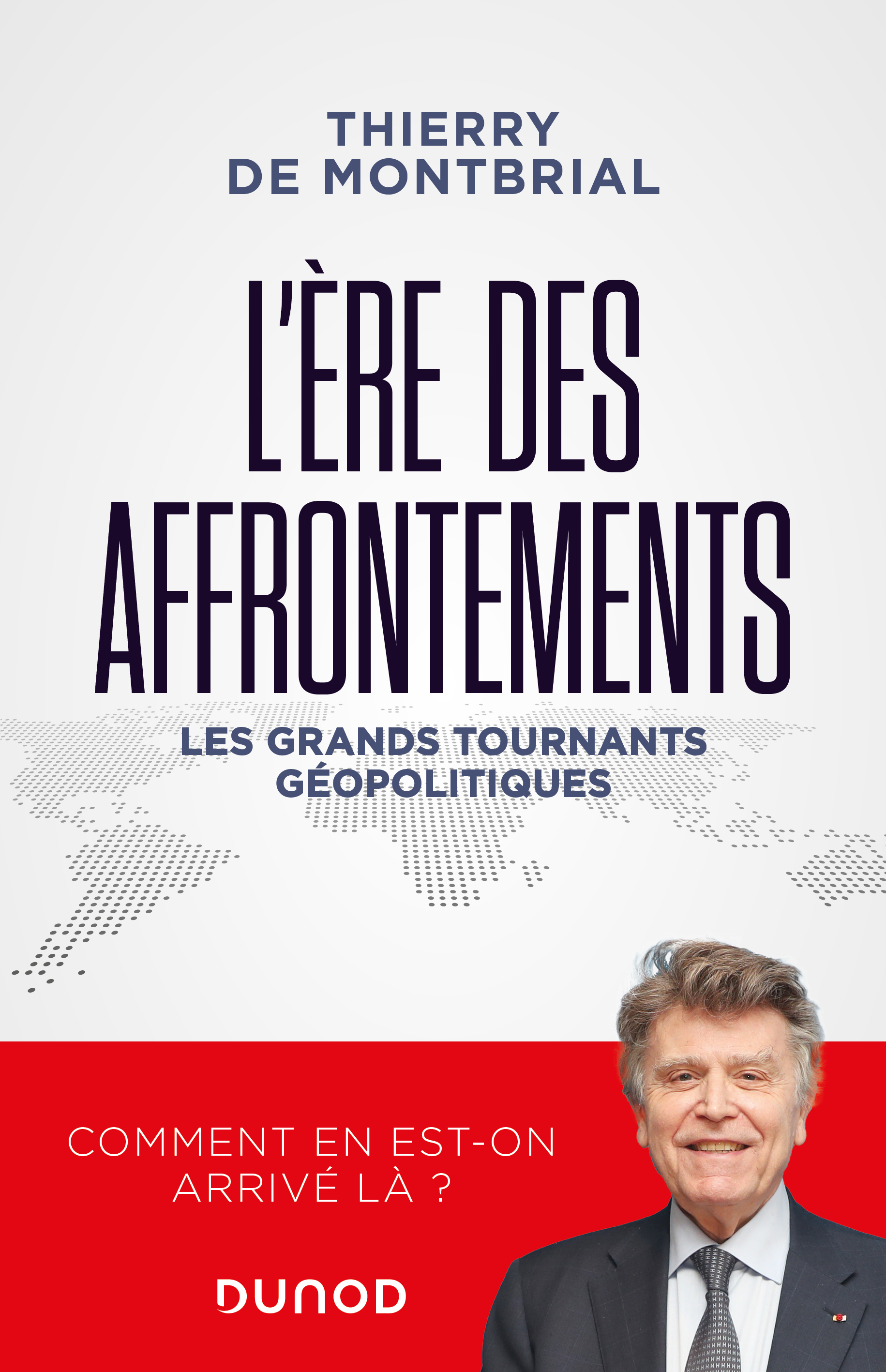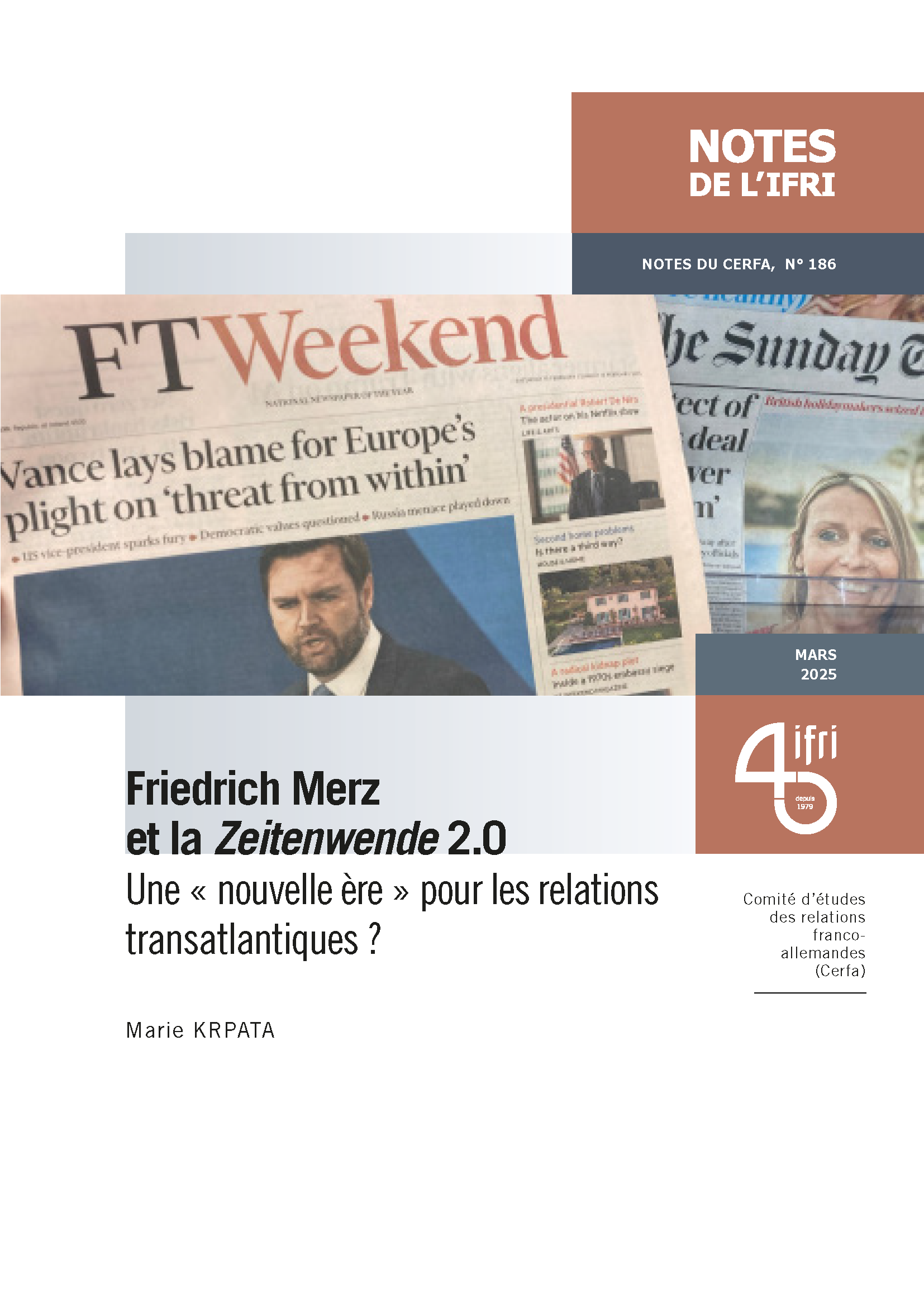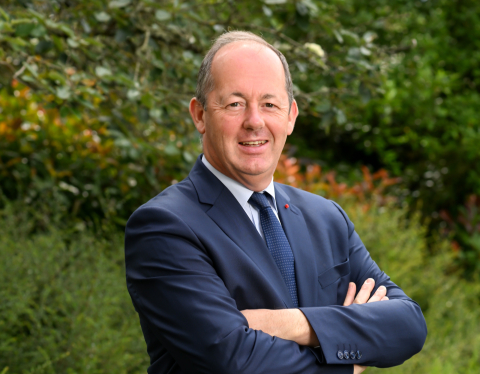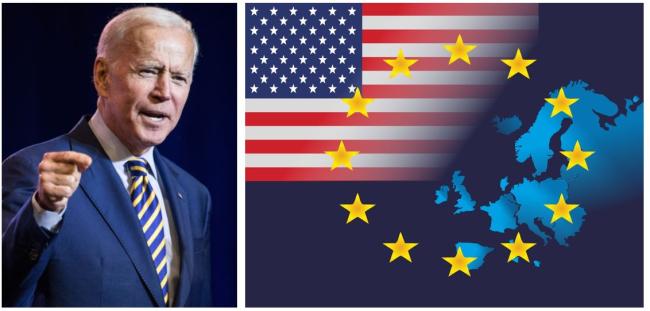Europe
L'Europe est entendue ici dans son acception géographique. Elle ne se limite pas à l'Union européenne, et inclut par exemple le Royaume-Uni ou les Balkans. Elle reste centrale dans les relations internationales.
Sujets liés

La fabrique du risque : les entreprises face à la doxa géopolitique
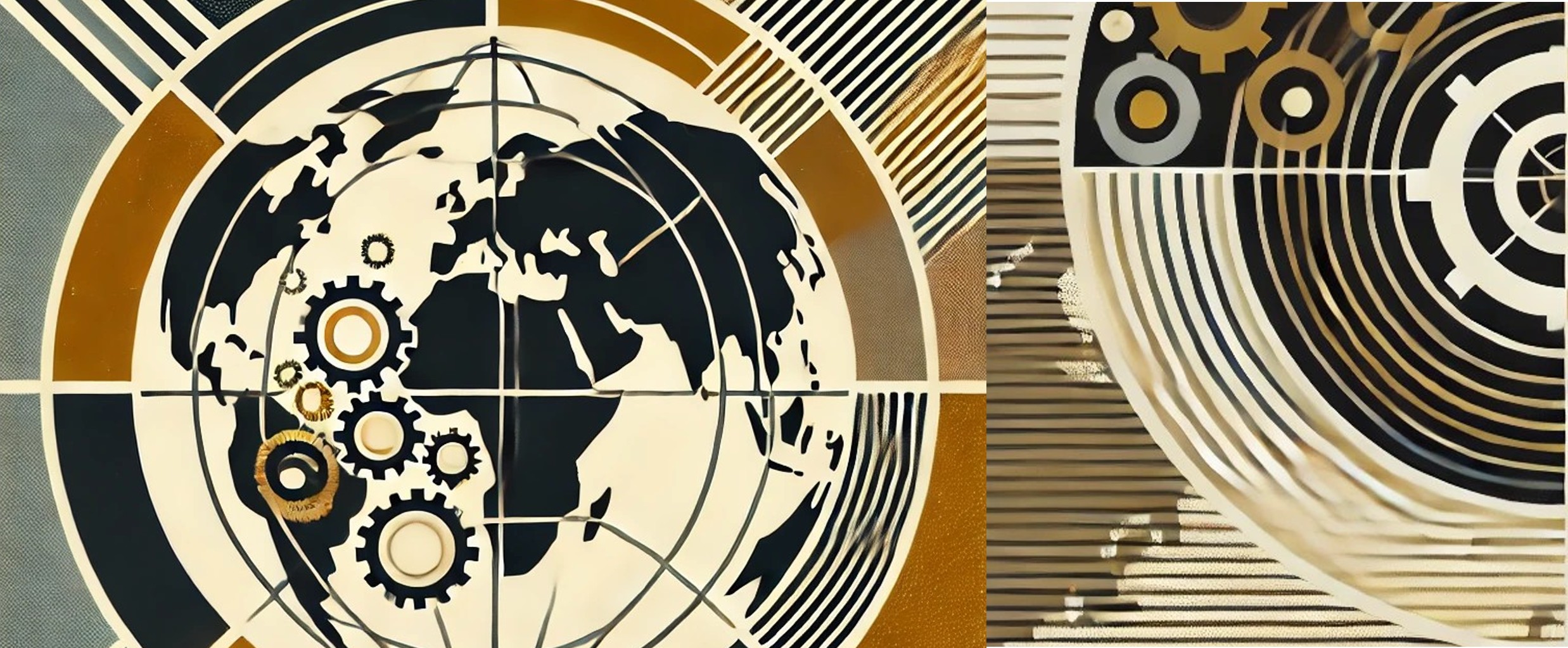
La déformation du triangle stratégique États-Unis – Chine – Russie crée de nouvelles dynamiques auxquelles les entreprises ne peuvent se soustraire. Elles sont confrontées au risque géopolitique, sans forcément s’y être préparées. Leurs dirigeants ne peuvent plus l’ignorer.
Sanctions de l'UE contre la Russie : "Cela reste de l'ordre de la mesure symbolique"
Les sanctions ciblées décidées par l'Union européenne (UE) pour sanctionner la Russie dans le dossier Navalny, interrogent sur la capacité de l'UE à s'affirmer comme un acteur géopolitique de premier plan, selon le chercheur Éric-André Martin.
Guerres invisibles, une conversation avec Thomas Gomart
À l'occasion de la sortie de son dernier livre, Thomas Gomart s'est entretenu avec Florian Louis. « J’ai conçu Guerres invisibles comme une sorte de réponse à La guerre hors limite dans laquelle je voulais montrer que si les militaires n’ont plus le monopole de la guerre, cela ne signifie nullement qu’ils perdent leur raison d’être. »
L’autonomie stratégique européenne et la présidence Biden
Une vingtaine de personnalités internationales issues de plusieurs sensibilités et horizons différents ont réfléchi à la question de l’impact de la présidence Biden sur le futur de l’autonomie stratégique européenne.
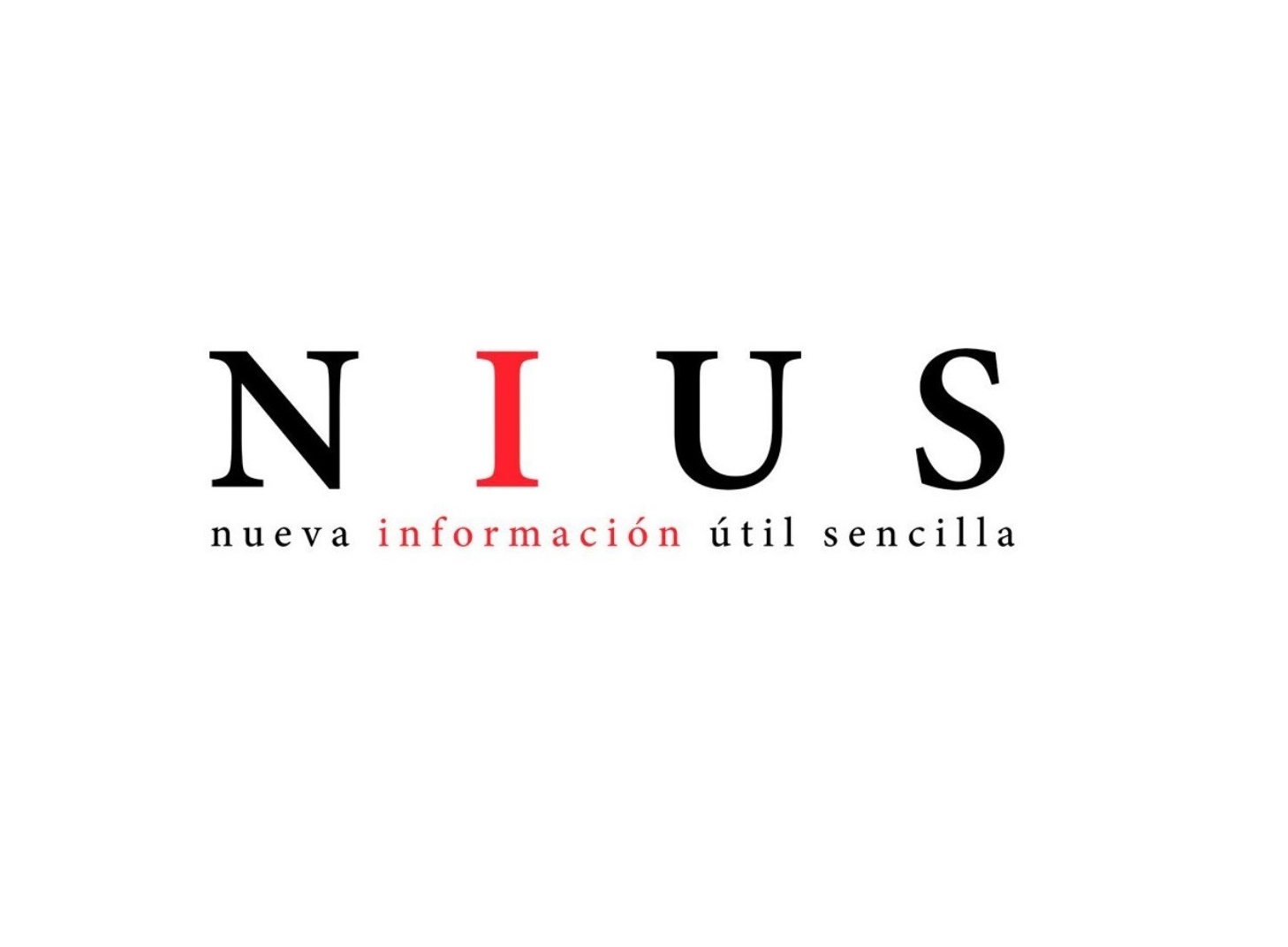

Le "gazoduc" de Poutine en Allemagne met la pression sur Merkel, souligne la France
Avec le retour en prison du leader de l'opposition russe Alexei Navalny et la manifestation de milliers de ses partisans en Russie, le projet énergétique Nord Stream 2 de Poutine en Allemagne est de nouveau remis en question. À Paris, la sanction de cette infrastructure est liée à l'avenir Navalny.
Entre la Chine et les États-Unis, l’Europe cherche sa place
Quelles relations l’Union européenne, la plus grande entité démocratique au monde peut-elle établir avec la Chine, la plus grande et la plus puissante dictature de la planète ? Le 30 décembre 2020, l’Union européenne a signé, en visioconférence, avec Pékin un accord de principe facilitant les investissements sur leurs marchés respectifs, en échange d’engagements guère contraignants pour la Chine de respecter les conventions internationales contre le travail forcé.
Présidence allemande du Conseil de l’Union européenne (UE) : Quel bilan géopolitique ?
Dans cet article Paul Maurice livre un bilan exhaustif de la présidence allemande du Conseil de l’Union européenne (UE).
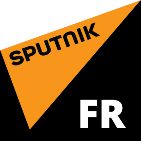

Merci Angela ? Pourquoi Merkel voulait conclure un accord entre l’UE et la Chine
En fin de son mandat, Angela Merkel fête un accord commercial entre l’Union européenne (UE) et la Chine qui inquiète les Américains. À raison ? Quel rôle la chancelière allemande a-t-elle joué dans la conclusion d’un nouvel accord commercial entre l’Union européenne et la Chine ?
Guerres invisibles. Nos prochains défis géopolitiques
Quels sont les prochains défis géopolitiques du siècle ? La pandémie mondiale a modifié les équilibres entre Asie et Occident et scellé la rupture entre la Chine et les États-Unis, accentuant le basculement du monde vers l’Est. Sur cet échiquier polarisé, deux lignes de fracture convergent : la dégradation environnementale et la propagation technologique où se jouent désormais les principales rivalités stratégiques et économiques.


Allemagne, France et États-Unis : quelle direction pour le trio transatlantique ?
2021 est synonyme de nouveau départ pour les relations transatlantiques. Les alliances américano-européennes depuis la Deuxième Guerre mondiale ont grandement façonné le caractère du monde occidental actuel. L’Allemagne et la France y ont d’ailleurs joué un rôle crucial.
Le patriotisme en Russie à l’épreuve du quotidien
Il est utilisé plus que jamais par le Kremlin comme un remède face aux difficultés. Mais le recours à l’unité nationale et la référence au sacrifice des anciens voient se développer une adhésion sous conditions aujourd’hui dans la société russe.
Soutenez une recherche française indépendante
L'Ifri, fondation reconnue d'utilité publique, s'appuie en grande partie sur des donateurs privés – entreprises et particuliers – pour garantir sa pérennité et son indépendance intellectuelle. Par leur financement, les donateurs contribuent à maintenir la position de l’Institut parmi les principaux think tanks mondiaux. En bénéficiant d’un réseau et d’un savoir-faire reconnus à l’international, les donateurs affinent leur compréhension du risque géopolitique et ses conséquences sur la politique et l’économie mondiales. En 2024, l’Ifri accompagne plus de 70 entreprises et organisations françaises et étrangères.



